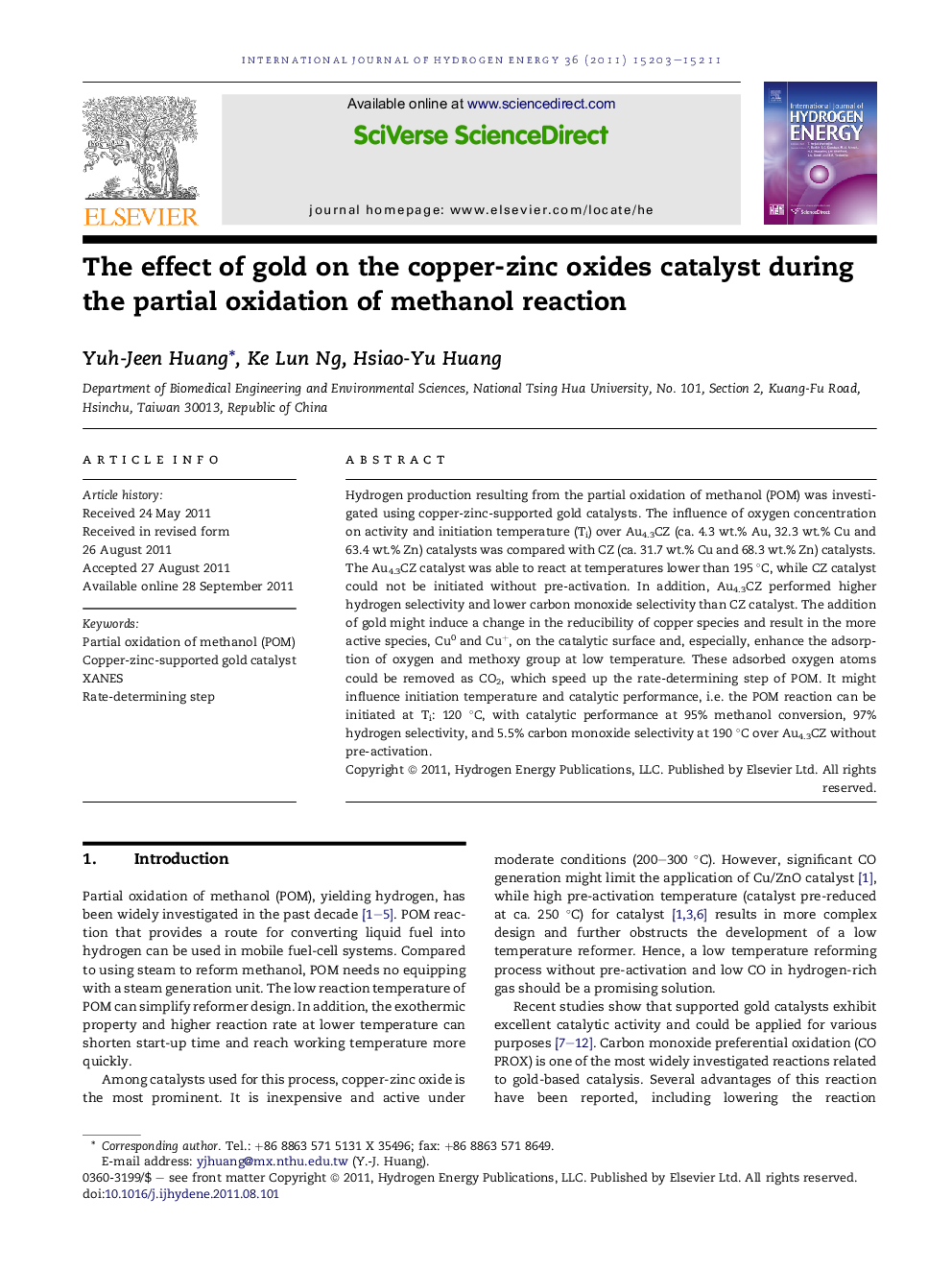| Article ID | Journal | Published Year | Pages | File Type |
|---|---|---|---|---|
| 1271813 | International Journal of Hydrogen Energy | 2011 | 9 Pages |
Hydrogen production resulting from the partial oxidation of methanol (POM) was investigated using copper-zinc-supported gold catalysts. The influence of oxygen concentration on activity and initiation temperature (Ti) over Au4.3CZ (ca. 4.3 wt.% Au, 32.3 wt.% Cu and 63.4 wt.% Zn) catalysts was compared with CZ (ca. 31.7 wt.% Cu and 68.3 wt.% Zn) catalysts. The Au4.3CZ catalyst was able to react at temperatures lower than 195 °C, while CZ catalyst could not be initiated without pre-activation. In addition, Au4.3CZ performed higher hydrogen selectivity and lower carbon monoxide selectivity than CZ catalyst. The addition of gold might induce a change in the reducibility of copper species and result in the more active species, Cu0 and Cu+, on the catalytic surface and, especially, enhance the adsorption of oxygen and methoxy group at low temperature. These adsorbed oxygen atoms could be removed as CO2, which speed up the rate-determining step of POM. It might influence initiation temperature and catalytic performance, i.e. the POM reaction can be initiated at Ti: 120 °C, with catalytic performance at 95% methanol conversion, 97% hydrogen selectivity, and 5.5% carbon monoxide selectivity at 190 °C over Au4.3CZ without pre-activation.
► CuZnO catalyst with gold can initiate POM reaction at low temperature. ► More active species, Cu0 and Cu+, were resulted on the surface of catalyst with gold. ► The adsorption of oxygen and methoxy group were enhanced at low temperature. ► Adsorbed oxygen removed as CO2 could speed up the rate-determining step of POM.
